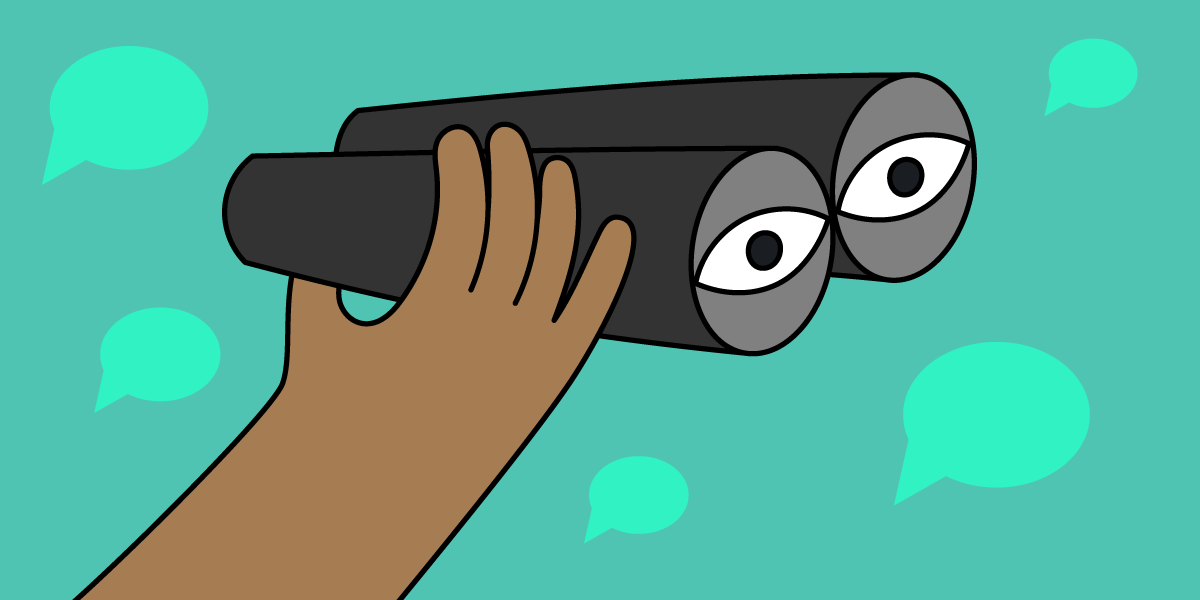
I know a thing or two about being lonely.
I’m a digital nomad and I have worked alone for the last three years (before remote working was all the rage). I’m rarely in one place for more than a week or two, often in destinations where I don’t know a single soul.
As a result, I spend a lot of time by myself. And even though I enjoy and need quite a bit of alone time, sometimes it gets to be so much, and I start to wonder, “Why am I so lonely?”
If I’m not careful, the loneliness can start to feel suffocating. That’s when I know I’ve crossed over from healthy alone time into genuine, painful loneliness.
Fortunately, years of practice have taught me how to deal with feelings of loneliness and isolation. I’ve developed a toolkit that I can pull from when I’m feeling disconnected from people to pull myself out of my lonely state.
In this article, I’m going to explore what loneliness is and how it feels. Then I’m going to show you what those tools are, so you too can find ways to feel less lonely.
If you’re struggling with isolation, there are resources that can help you. Reach out to a family member or friend you love and trust, or try one of these resources:
Visit the National Suicide Prevention Lifeline | 1-800-273-8255
Loneliness vs. being alone
From the outside, feeling lonely and being alone may seem synonymous. In both situations, you are experiencing isolation from others and spending time with yourself.
But there’s a big difference between loneliness and solitude. Solitude is something we choose—you may decide that you need a night alone with just Netflix and a pizza, or you might choose to go on a solo travel adventure.
Loneliness, on the other hand, is not something most people choose to feel. Unlike the pleasure and relaxation that you may feel when you consciously choose to be alone, with loneliness, it will feel out of your control and can bring about feelings of sadness, depression, isolation, and anxiety.
That doesn’t sound so good, and indeed, too much loneliness is not a good thing. But before we get into ways you can manage your loneliness, I want to impart two very important facts:
- Loneliness is universal. Every single person on Earth experiences it, usually pretty frequently, throughout life.
- Loneliness is not always a bad thing, and it is not an indication that there’s something wrong with you.
Humans are social animals; we get fulfillment from our connections with those around us. But even the most popular, extroverted people will struggle with loneliness because one simply cannot be social all the time.
You also don’t need to be physically alone to feel lonely. Take it from me—one of the loneliest feelings in the world is when a relationship is coming to an end, even if you spend most of your time with your partner. I’ve also felt loneliness in big crowds, with friends, and on stage in front of an audience. Loneliness is often entirely internal.
But external factors can also play a huge role in loneliness. You may feel isolated because you are part of a marginalized group or because you’ve gone through significant life changes that have left you feeling unstable.
Loneliness is always uncomfortable, but it can also serve as a time for reflection and perhaps meditation. Feeling lonely can remind us of the value of our relationships, or encourage us to seek new ones.
So when you’re feeling lonely, don’t rush to find a way to solve it. Loneliness is healthy in small doses—the tips in this article are for folks who feel loneliness too acutely, too often.
5 tips for helping you manage loneliness
Name and reflect on the loneliness
Admitting that you’re lonely isn’t easy, even if you’re only admitting it to yourself. Loneliness can feel like a failure, and it’s easy to beat yourself up about it.
For this reason, many people will simply refuse to acknowledge that loneliness is what they’re feeling. That only makes the situation worse—feelings of isolation will increase and may begin to manifest in ugly ways, such as sinking into a deep depression or experiencing mood swings. This, of course, makes you feel even more isolated and keeps people away from you, so the issue compounds itself.
Instead, name your loneliness and allow yourself some time to reflect on it. Say to yourself, “I’m feeling lonely today. I wonder why?” Take time to mull over the reasons you’re feeling lonely.
Perhaps it’s been a long time since you socialized. Maybe you’ve got a lot on your plate at work, and it’s not leaving time for connections with others. Did someone say or do something that made you feel lonely? Or maybe you’ve recently gone through a breakup or lost a friend.
There are a million and one reasons why people feel lonely. Just like going to the doctor for an illness, you need to find out the root cause of your lonely feelings to discover the right treatment.
Be brave and reach out
The first thing you should do when feeling lonely is reach out to someone. This may seem like a very obvious tip, but paradoxically, reaching out to someone else can be incredibly challenging when we’re feeling lonely.
You may be worried that others will judge you for feeling lonely, or that you’ll come off as needy or pathetic. But if the person you’re reaching out to genuinely cares about you, they won’t see you this way—and more often than not, people enjoy receiving a surprise phone call, text message, or invitation to hang out with a loved one.
It’s possible that you may not have someone you can reach out to directly. Perhaps you aren’t the type to have an enormous group of friends, or you’re disconnected from your family for whatever reason. In these cases, it might be best to reach out for professional help from a mental health counselor.
That’s a good immediate solution, but if you find you’re frequently feeling disconnected from other people and don’t know who to call, you’re not alone. Making friends as an adult is hard. Fortunately, we have this guide to help:
When you do reach out to someone, you don’t have to come clean and tell them that you’re feeling lonely unless you want to. You can simply let them know you were thinking of them and wanted to chat, or tell them that you have something on your mind you want to share.
Even if you’re physically isolated from people, an email, voice note, or video call can make a world of difference and help keep loneliness at bay.
Invest in a hobby
Isolation is a close cousin of boredom.
When we have too much time on our hands or we’re dissatisfied with the way we’re spending our time, loneliness starts creeping in.
In such cases, you don’t necessarily need other people to make yourself feel less lonely. You may only need a creative outlet to help you pass the time.
There are plenty of hobbies that will make you money, but it’s not always best to focus on monetizing your leisure time. Instead, look for hobbies that bring you fulfillment—something you do simply because you enjoy it.
Personally, I’m a bookworm. When I’m feeling lonely and bored, retreating into a fictional world with interesting characters can make me forget how I’m feeling in the moment, and I typically emerge a few chapters later feeling much better.
You may be able to kill two birds with one stone by choosing a hobby that also helps you build a sense of community. Join a rock climbing group, start a book club, or sign up for a kickball league.
For more tips on how to start a hobby you’ll love, check out this podcast from NPR’s LifeKit:
Take yourself on a date
If you want to fight off loneliness, sometimes all you need to do is reframe your alone time.
Sitting alone wishing you had something to do or someone to hang out with can increase feelings of isolation.
But what if you used that alone time to treat yourself? I call this practice “taking myself on a date,” and it’s a great way to transform what would be a lonely night into something fun and memorable.
Dates with myself have included long walks on the beach with a podcast, dinner at my favorite restaurants, a random movie screening in the middle of the day, and even solo trips to faraway destinations. Doing these things alone doesn’t feel lonely if you go into the experience with intentionality—you are setting off to spend time with yourself, and just like a date with another person, your goal is to get to know your “date” on a deeper level.
Reduce your screen-time
Here’s the thing about social media: People typically only post when things are going well for them. They’re happy to showcase photos of a delicious dinner they’re sharing with friends, a romantic date, or an exotic group vacation.
They are far less likely to post the moments when they’re feeling disconnected from people and totally alone.
So when you scroll through TikTok or Instagram, it’s easy to feel like everyone is connected and happy except you. This will undoubtedly bring about that nasty thought: “I feel so lonely.”
But as I’ve said in this article already, everyone feels loneliness, and for many it’s a frequent occurrence.
I’m not telling you to disconnect from social media altogether, but I do recommend that you back away from your phone when you’re feeling lonely. Otherwise, you may end up feeling more disconnected in the end.
Loneliness happens to the best of us, but you don’t have to let it run your life. When you’re feeling isolated, try reaching out to others or intentionally connecting with yourself. The feeling will pass, and you may even grow from the experience.








